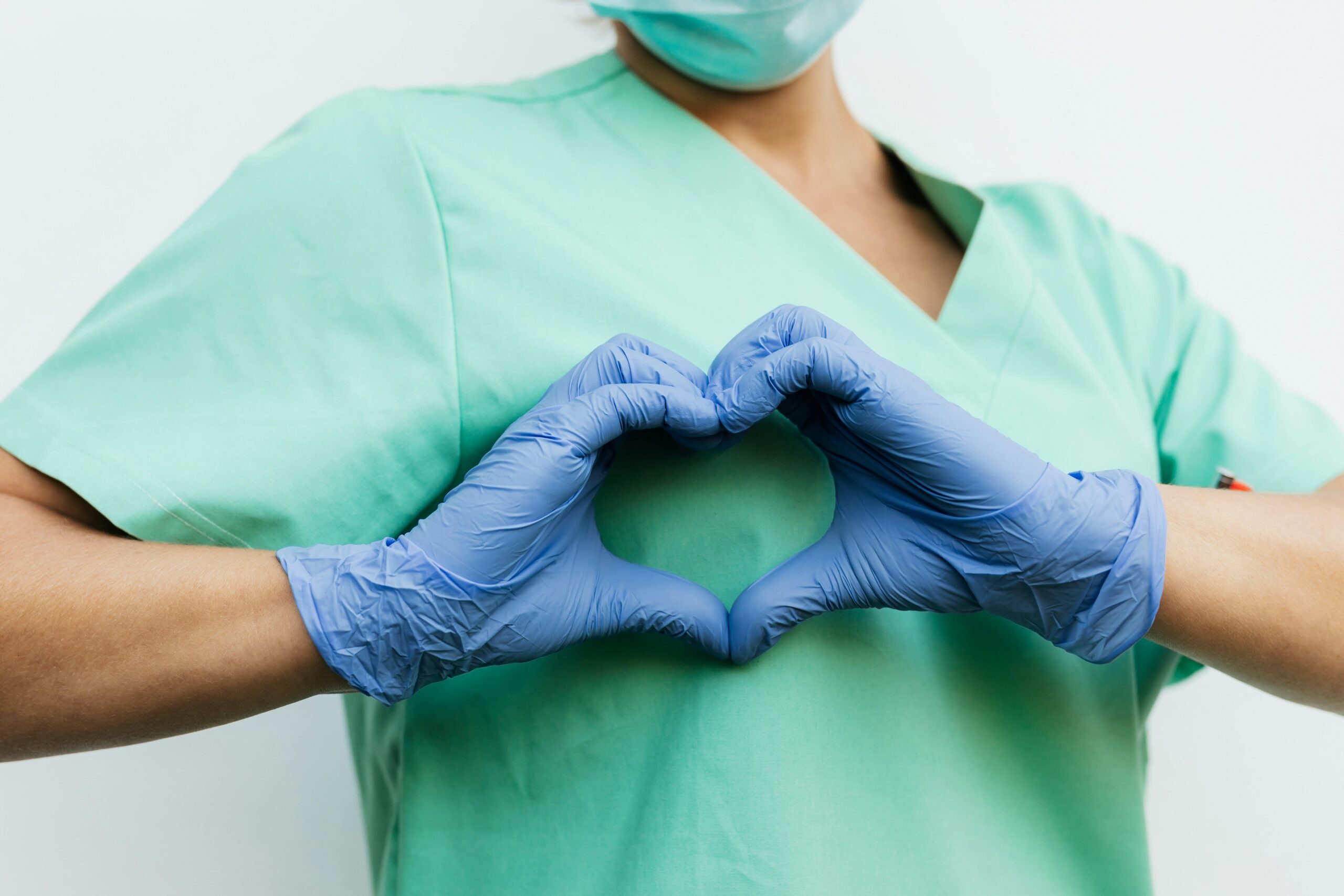Recovery from opioid addiction isn’t just about stopping drug use—it’s about reclaiming a life. That’s where opioid treatment programs (OTPs) come in. More than a single medication or appointment, OTPs offer comprehensive, long-term care tailored to the complex realities of opioid use disorder (OUD). They combine medication, therapy, accountability, and support in a structured way that helps people stabilize, grow, and stay on track. Whether you’re exploring treatment for yourself or supporting someone else, understanding what OTPs do—and how they work—can be a game changer.Over 2.7 million people in the U.S. live with OUD, according to a 2024 CDC report. With synthetic opioids like fentanyl flooding the streets, overdose rates remain alarmingly high. But research also tells a powerful story of hope: people in structured opioid treatment programs are more likely to stay in recovery, reduce or stop illicit drug use, avoid criminal justice involvement, and live healthier, more stable lives.This blog post takes you deep inside the world of OTPs. We’ll break down what they offer, how they work, who they’re for, and why they’re so effective. Along the way, we’ll address common myths, share expert insights, and provide actionable advice on how to get started. Because recovery isn’t just possible—it’s probable with the right support in place.
Table of Contents
ToggleWhat Is an Opioid Treatment Program (OTP)?
An OTP is a federally regulated, state-licensed facility that provides medication-assisted treatment (MAT) for people diagnosed with opioid use disorder. These programs don’t just hand out medication—they offer a full package of care that includes medical supervision, counseling, education, and behavioral health services.Most OTPs dispense medications like methadone, buprenorphine, or naltrexone under strict guidelines. Treatment is personalized to the individual’s needs and evolves over time. OTPs may operate on a daily, weekly, or monthly basis depending on the patient’s stage of recovery and stability.According to SAMHSA (2024), OTPs are the only setting where methadone for OUD can legally be administered in the U.S.—making them a vital resource for people who need this particular medication.
Why OTPs Are the Gold Standard for Many Patients
While there are many paths to recovery, OTPs stand out for several reasons:
1. Structure and Accountability
Daily or regular visits provide built-in accountability. Patients often engage in scheduled medication dosing, therapy sessions, urine screenings, and check-ins with counselors. This rhythm helps people stay engaged—especially in early recovery.
2. Comprehensive Support
OTPs integrate medical, psychological, and social support. This multidisciplinary approach addresses the root causes of addiction, not just the symptoms.
3. Long-Term Continuity
Unlike short-term detox centers or 28-day rehabs, OTPs offer ongoing care. This is critical for OUD, which often requires sustained support over months or even years.
4. Proven Outcomes
Multiple studies—including a 2023 meta-analysis published in The American Journal of Psychiatry—have found that participation in OTPs significantly reduces opioid use, overdose deaths, HIV/HCV transmission, and criminal justice involvement.
5. Tailored to the Individual
OTPs don’t use cookie-cutter solutions. Treatment plans are personalized and revised based on each patient’s progress, challenges, and goals.
What Medications Are Used in OTPs?
Medication-assisted treatment (MAT) is the cornerstone of OTP care. These medications don’t substitute one addiction for another—they help restore normal brain function and stabilize lives.
Methadone
Methadone is a full opioid agonist that relieves withdrawal symptoms and cravings. It is dispensed on-site at OTPs under direct supervision, particularly in the early stages of treatment.
Advantages:
-
Strong evidence base (over 50 years of use)
-
Particularly effective for patients with long histories of opioid use or high tolerance
-
Dosing can be adjusted daily based on response
Considerations:
-
Requires regular clinic visits, especially early on
-
Potential for misuse if not managed correctly
-
Must be taken under medical supervision due to overdose risk
Buprenorphine (Subutex®, Suboxone®, Sublocade®)
Buprenorphine is a partial opioid agonist that activates receptors without producing the intense euphoria or sedation associated with full agonists.
Advantages:
-
Lower risk of overdose than methadone
-
Can be transitioned to take-home prescriptions as stability increases
-
Suitable for outpatient or telehealth-based programs
In OTP settings:
Buprenorphine is often used for patients who want a less intensive in-person schedule or are transitioning from other treatment settings.
Naltrexone (Vivitrol®)
Naltrexone is an opioid antagonist that blocks the effects of opioids. It’s available as a monthly injection (Vivitrol®) and is non-addictive.
Best for:
-
Patients who have completed detox and want medication with no opioid effects
-
Individuals concerned about diversion or dependency
Challenges:
-
Requires complete detox before initiation
-
May be less effective in preventing relapse for some patients
Core Services Provided in OTPs
Medication is just one piece of the puzzle. High-quality OTPs offer a range of services designed to promote long-term recovery.
Medical Supervision and Physical Health Services
-
Regular checkups and vitals monitoring
-
Assessment and treatment of co-occurring physical conditions
-
Screening for infectious diseases like HIV and hepatitis C
Individual and Group Counseling
-
Cognitive Behavioral Therapy (CBT): Helps identify triggers and reshape thought patterns
-
Motivational Interviewing (MI): Builds motivation to change
-
Trauma-Informed Care: Addresses underlying trauma that often fuels addiction
Case Study: A Renew Health client named Lisa, 38, had tried inpatient rehab three times with little success. Through her OTP’s trauma-focused therapy and steady methadone maintenance, she found stability, reconnected with her children, and returned to work.
Psychiatric and Behavioral Health Services
-
Diagnosis and treatment of depression, anxiety, PTSD, bipolar disorder
-
Medication management for mental health disorders
-
Crisis support and stabilization services
Social Support and Case Management
-
Help with housing, employment, legal issues, and transportation
-
Referrals to social services
-
Coordination with family and outside care providers
Peer Support and Recovery Coaching
Many OTPs now include peer specialists—people with lived experience of addiction and recovery. Their insight, encouragement, and relatability can be profoundly motivating.
What a Typical Day in an OTP Looks Like
While programs vary by location, a typical OTP schedule may look like:
Morning
-
Arrival and check-in
-
Urine drug screening (periodic/random)
-
Medication dosing (methadone or buprenorphine)
-
Brief check-in with nurse or counselor
Midday
-
Individual or group therapy
-
Peer support meetings
-
Educational sessions (relapse prevention, life skills, parenting, etc.)
Afternoon
-
Case management meetings
-
Referrals to outside services
-
Planning for next week’s goals
Over time, patients who show stability may qualify for take-home doses, fewer in-person sessions, and greater independence.
Who Are OTPs Best For?
While MAT can benefit almost anyone with OUD, OTPs are particularly suited to:
-
People with moderate to severe OUD, especially involving fentanyl or heroin
-
Individuals with multiple prior relapses or overdoses
-
Those with co-occurring mental health conditions
-
People without stable housing or transportation who need extra support
-
Individuals under court supervision or legal mandates
Debunking Common Myths About OTPs
Let’s clear up a few misconceptions:
“You’re just trading one drug for another.”
False. Methadone and buprenorphine stabilize brain chemistry without causing euphoria when taken as prescribed. They’re medications—not replacements.
“MAT patients can’t be sober.”
Wrong. MAT is recovery. The goal is stability, safety, and life restoration—not medication abstinence at all costs.
“OTPs are only for people who hit rock bottom.”
Not true. OTPs can prevent rock bottom. Early intervention leads to better outcomes.
“People on methadone just go to the clinic every day and don’t do therapy.”
Inaccurate. OTPs are designed as comprehensive treatment hubs with therapy, medical care, and case management.
Success Stories and Real-World Outcomes
In a 2023 Renew Health survey of over 400 OTP patients:
-
72% reported improved family relationships after 6 months
-
65% gained or maintained employment
-
88% had no opioid-positive drug screens by month three
-
95% felt their mental health had improved
Client Quote: “Before the program, I couldn’t go a day without fentanyl. Now, I’m six months clean, back in school, and finally believe in myself.”
How OTPs Fit into the Larger Treatment Ecosystem
OTPs are one part of a broader continuum of care. Depending on need, patients may also access:
-
Inpatient detox prior to beginning an OTP
-
Outpatient therapy for continued behavioral support
-
Telehealth MAT for increased convenience
-
Sober housing to provide a safe recovery environment
-
Alumni groups or long-term follow-up to prevent relapse
The best programs coordinate across these services, tailoring care to each person’s recovery journey.
How to Find and Enroll in an OTP
Finding the right program can feel daunting, but here are simple steps to get started:
-
Use SAMHSA’s Treatment Locator
Visit findtreatment.gov and search by ZIP code. Filter results by “Opioid Treatment Program” or “Methadone.” -
Ask for a Referral
Primary care doctors, hospitals, therapists, or legal representatives can often refer you to trusted programs. -
Check Credentials and Services
Make sure the program is licensed, accredited (by CARF or The Joint Commission), and offers therapy in addition to medication. -
Call for an Assessment
Most programs can complete intake within 1–3 days. Ask what paperwork, insurance, or documentation is needed. -
Prepare for the First Visit
Bring ID, insurance info, and medical records if available. Be honest about your substance use—that helps staff create the best plan for you.
Cost and Insurance
Most OTPs accept a range of payment methods:
-
Medicaid and Medicare
-
Private insurance
-
State and local grant funding
-
Sliding scale fees based on income
Don’t assume you can’t afford treatment—many people qualify for free or reduced-cost care.
Actionable Takeaways
-
OTPs offer structure, support, and proven outcomes for opioid addiction recovery.
-
MAT is central to success, with medications like methadone, buprenorphine, and naltrexone.
-
Therapy, medical care, and peer support are key parts of the OTP model.
-
OTPs are ideal for people needing high-support care and long-term structure.
-
Debunk the myths: Medication is part of recovery, not a shortcut.
-
Find a program via SAMHSA or ask your doctor for help.
-
Take the first step with a phone call— intake is faster and easier than most people think.
-
Recovery is not linear, but with the right team, it’s absolutely possible.
Conclusion
Opioid treatment programs are more than clinics—they’re lifelines. They meet people in their darkest moments and walk with them toward stability, healing, and renewal. For many, OTPs offer the first safe harbor in years of chaos. For others, they provide the structure needed to maintain long-term recovery.Whatever your story, know this: treatment works. People recover every single day, and they do so with the help of programs like these. If you or someone you love is struggling with opioid addiction, don’t wait. The right support is out there—and it could start changing everything today.
Renew Health: Your Partner in Opioid Treatment Program Support
Phone: 575‑363‑HELP (4357)
Website: www.renewhealth.com




